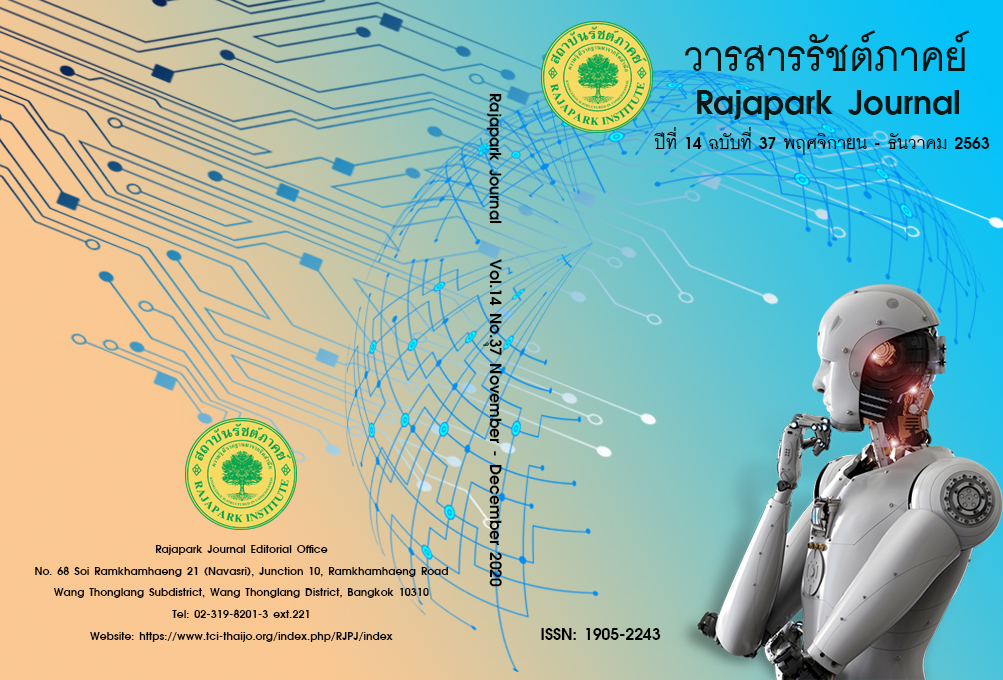Factors affecting the Effectiveness of the Regional Comprehensive Economics Partnership
Main Article Content
Abstract
Study of factors affecting the effectiveness of regional economic partnership agreements. It has two objectives: 1) to study guidelines for establishing regional economic partnership agreements; 2) analyzing policy decisions. That lead to the achievement of establishing a regional economic partnership agreement. Using qualitative research Document research forms by studying publications and websites and field research. Focus on group interviews. The sample group was Ramkhamhaeng University teachers and students at the master's degree level. By selecting specific information, a total of 28 people collected the information in a document and analyzed the content. Evaluate and interpret by describing. The findings were as follows: 1) Guidelines for the establishment of regional economic partnership agreements. Running by Thailand, the ASEAN Chair in 2019, has drafted a Regional Economic Partnership Agreement with the approval of China, Japan, South Korea, Australia, New Zealand, and 10 ASEAN members, and will be formally signed in 2020 in Vietnam. 2) Policy decisions that guide the outcome of the regional economic partnership agreement of 15 countries are economically rational. India made decisions with a satisfying decision-making model. There are three key factors: 1) a common goal of the largest free trade area in the region; 2) a model of negotiation with reducing conflicts; 3) a model of economic rational decision-making and decision-making. With a satisfied decision-making model.
Article Details
Views and opinions appearing in the Journal it is the responsibility of the author of the article, and does not constitute the view and responsibility of the editorial team.
References
Department of Trade Negotiations. (2019). FTA CORNER: Progress of negotiating results RCEP. International Trade Journal, 6(23), 16-19.
Dye, T. R. (1984). Understanding Public Policy. Englewood Cliffs. Prentice Hall.
Easton, D. (1953). The Political System An Inquiry in to the State of Political Science. New York: Alfred A. Knorf.
Em-ong, W. (2019). ASEAN Insight: Thailand's ASEAN Chairmanship in 2019. Retrieved November 10, 2019, from https://www.bangkokbiznews.com/blog/detail/647045
Kamonwan, T. (2020). Solve the 7-year puzzle “RCEP”. International Trade Journal, 6(24), 26-27.
Lasswell, H. D., & Kaplan, A. (1970). Power and Society. New Haven: Yale University press.
Shafritz, J. M., & Hyde, A. C. (1987). Classics of Public Administration (2nd ed.). Dorsey Press.
Srisangnam, P. (2020). 5 issues to be focused on The ASEAN Summit 36. Retrieved June 25, 2020, from https://thestandard.co/asean-summit-36-teleconference/
Yossomsakdi, S. (2018). Public Administration Concept and Theory (2nd ed.). Bangkok: World Trade Thailand.


